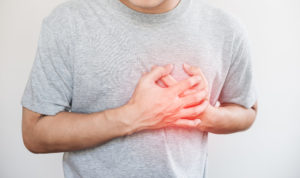What Are the Health Consequences of Untreated Sleep Apnea?
August 4, 2022

Sleep apnea is known to disrupt quality rest and leave you feeling exhausted during the day. If you find yourself nodding off behind the wheel or during work meetings, you may be affected by sleep apnea. While feeling drowsy during the day may seem like a minor annoyance, sleep apnea can actually lead to dangerous health consequences if left untreated. Keep reading to learn about the health risks associated with sleep apnea and how you can reduce sleep apnea symptoms with help from a dentist.
What Is Sleep Apnea?
Sleep apnea is a common sleep disorder characterized by short, repeated breathing interruptions dozens or even hundreds of a night. According to the American Sleep Apnea Association, over 20 million people are affected by sleep apnea. There are two main types:
- Obstructive sleep apnea (OSA) – Breathing interruptions occur when the muscles in the back of the throat relax and block the airway. OSA is the most common form of sleep apnea.
- Central sleep apnea – Breathing interruptions occur when the brain does not send the right signals to the throat and upper body muscles responsible for breathing.
What Are the Risk Factors?
Factors that increase the risk of sleep apnea include:
- Smoking
- Heavy alcohol consumption
- Obesity
- Diabetes
- Chronic nasal congestion
- Gender (men are twice as likely to have sleep apnea than women)
- Being older
How Does Sleep Apnea Impact Your Health?
Scientific research has uncovered troubling links between untreated sleep apnea and serious health problems, including:
- High blood pressure – Approximately half of all people diagnosed with obstructive sleep apnea also have high blood pressure.
- Type 2 Diabetes – Sleep apnea can contribute to insulin resistance, which is associated with the development of type 2 diabetes.
- Heart disease – Untreated sleep apnea may increase the risk of heart failure by a whopping 140% and the risk of coronary heart disease by over 25%.
- Automobile accidents – A recent study shared by the American Academy of Sleep Medicine found that people with sleep apnea are nearly 2.5 times more likely to be the driver in a motor vehicle accident.
How to Treat Sleep Apnea
Fortunately, alleviating sleep apnea symptoms is often straightforward with the help of an experienced sleep dentist. While CPAP machines are a traditional way of treating sleep apnea, many dental professionals now recommend oral appliance therapy as a more comfortable alternative. An oral appliance is a small custom mouthpiece that repositions the jaw to prevent airway blockage. When worn consistently at night, an oral appliance can dramatically improve one’s quality of sleep and reduce the health risks linked to sleep apnea.
Don’t let sleep apnea disrupt your sleep or, worse, lead to serious health problems. Talk to your dentist today to determine if you could benefit from oral appliance therapy.
About the Author
Dr. Ivan Paskalev has over 20 years of experience helping patients overcome sleep apnea and achieve quality rest. He is currently pursuing the American Academy of Dental Sleep Medicine’s Mastery Program to further elevate his clinical skill set. To learn more about the consequences of not treating sleep apnea, visit the Better Sleep Eugene website or call 541-246-8284.
No Comments
No comments yet.
RSS feed for comments on this post.
Sorry, the comment form is closed at this time.

